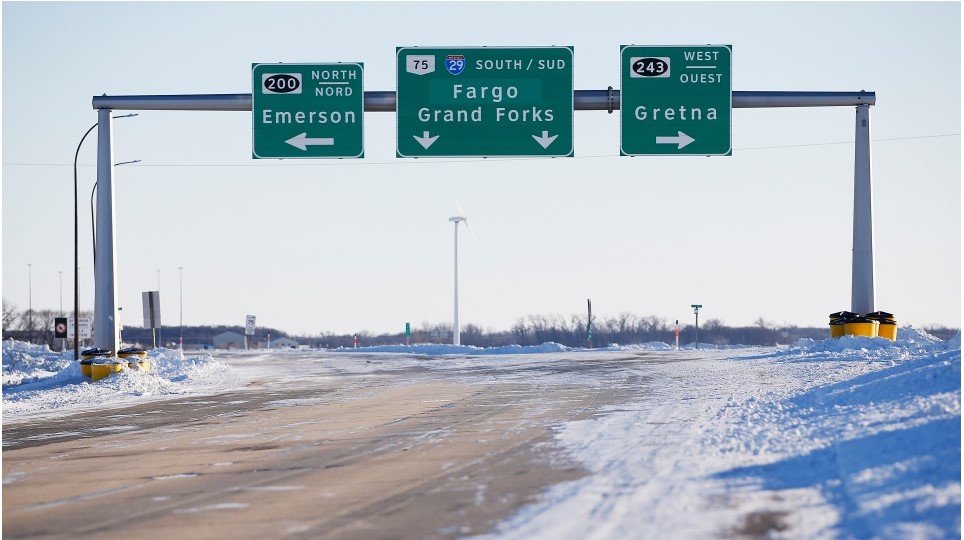Officers speaking with protesters to open lane at Manitoba border crossing: RCMP

RCMP say investigators are speaking with organizers of a blockade in an attempt to open a lane and allow vehicles to cross the Manitoba-U. S. border on both sides.
Access to the Emerson Port of Entry has been blocked since Thursday morning, when protesters parked farm equipment, semi-trailers and other vehicles about two kilometres north of the border as a show of solidarity for similar blockades in Ottawa and across the country calling for an end to COVID-19 vaccine mandates and other pandemic restrictions.
Mounties estimate there were about 75 vehicles involved in the blockade as of this past weekend.
Advertisement
Protesters have been allowing emergency vehicles, including police vehicles, as well as some agriculture transports to pass through the blockade.
Police say there have been no arrests and no tickets have been issued.
Officers from the Emerson and Morris RCMP detachments have been at the blockade since it started, and have received assistance from other police units throughout the province.
Manitoba’s transportation minister says he spoke with his federal counterpart over the weekend about economic impacts the blockade is having on the trucking industry.
“They’re losing a lot of money in this blockade and there is a lot of independent truckers losing valuable time and money and they have to feed their families,” Doyle Piwniuk said during a press conference.
Advertisement
He says the blockades are an inconvenience but those involved have the right to protest peacefully.
The Canada Border Services Agency has urged travellers to use ports in Boissevain and Sprague, Man., or at North Portal in Saskatchewan.
Because there are other border crossings available, Piwniuk says officials and police continue to speak with the protesters at the Emerson crossing.
“We want to diffuse the situation, but at the same time we want to make sure that we work with our justice department. We don’t want our transportation corridors to be blocked any longer.”
This report by The Canadian Press was first published Feb. 14, 2022.
